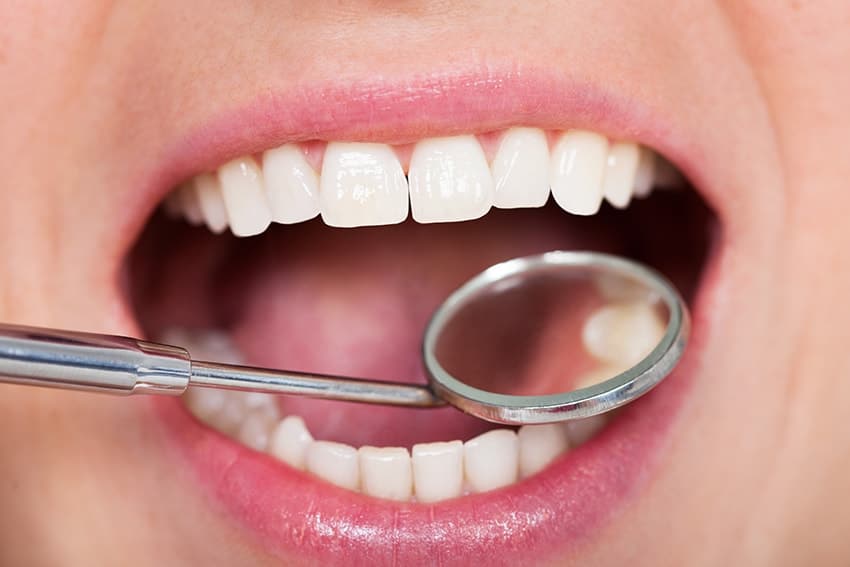In this article, we will discuss the most common question about the treatment modalities for cancer as they relate to oral health. You’ll learn how can affect your oral health and what you can do to avoid oral health problems so you can get the most out of your treatment.

How do cancer treatments affect my oral health?
Chemotherapy and radiotherapy treat cancer by killing cancer cells and stopping them from multiplying. While they do their job pretty well, it is important to note that they are not selective when choosing which cells to target and kill. They work on any cell that is rapidly-dividing, regardless of whether they are tumor cells or healthy normal cells. Some structures in your oral cavity consist of rapidly-dividing cells. These include (but not limited to) your gums, mucosa, and salivary glands.
What are the adverse oral health effects of cancer treatments?
Adverse effects of chemotherapeutic drugs include painful gums, dry mouth, burning sensation and peeling of the mucosa, swollen tongue, and dry mouth. These side effects can be so severe that they make it uncomfortable to speak, chew, and swallow. Another common adverse effect is an infection.
When should I see a dentist?
You’d be surprised to know that your dentist has an important role in your cancer treatment. All cancer patients, especially those with existing oral health problems are encouraged to visit their dentist about a month prior to their chemotherapy or radiotherapy appointments. This is to prevent any serious oral health problems. Side effects are often more severe in nature if the patient’s mouth is not healthy prior to the cancer treatment.
What procedures will my dentist perform during my dental visit?
Your dentist will perform a thorough oral examination and, if needed, take x-rays of your teeth. Cleaning may also be done. Additional procedures may be required depending on the findings.
Will my treatment have to be stopped?
Not all side effects can be prevented, but the fewer side effects you have, they more likely your cancer treatment will continue. However, if the side effects get too bad, your doctor may need to cut back on the treatment or even stop it. Take note that while it is a general finding that cancer treatments can cause oral health problems, the exact side effects, as well as the severity and duration, can vary among patients. It will all depend on how your body reacts to the treatment.
What can I do to minimize the adverse effects of cancer treatment?
Aside from seeing a dentist prior to treatment, it is also important to look in your mouth every day and watch out for any changes. For instance, if you experience dry mouth, fight it by drinking lots of water, sucking ice chips, and chewing sugarless gum or hard candy. You may also use a saliva substitute to moisten your mouth.
Cleaning your mouth is also a must. Brush your teeth every after a meal and at nighttime with a toothbrush that has extra-soft bristles. Use fluoride toothpaste but skip mouth rinses especially ones that contain alcohol in them. Flossing is also recommended, but you have to avoid areas that are sore and/or bleeding. Conventional mouth rinses may be replaced with a warm saline rinse. Create this rinse by adding one teaspoon each of salt and baking soda to a cup of warm water. If you are a denture-wearer and you have problems with the fit of your denture/s, consult your dentist as soon as you can to have them replaced.
With regards to your diet, select nutritious food that is easy to chew and swallow. Mashed potatoes, cooked cereals, and scrambled eggs are some of the recommended foods you can munch on. If you still find these foods difficult to chew, you can further soften these foods with broth, gravy, yogurt, and other sauces or liquids. Avoid hard, sharp foods that could cut or scrape your mouth. The same goes with spicy and acidic foods as they can irritate the mucosa.
Do children experience mouth problems too?
Cancer treatments cause side effects in children too, with tooth loss being the most common. Their permanent teeth will erupt slower and may show up looking a bit different from normal teeth. To prevent any problems, consult a pediatric dentist to have your child’s teeth and jaws checked for any growth problems.
